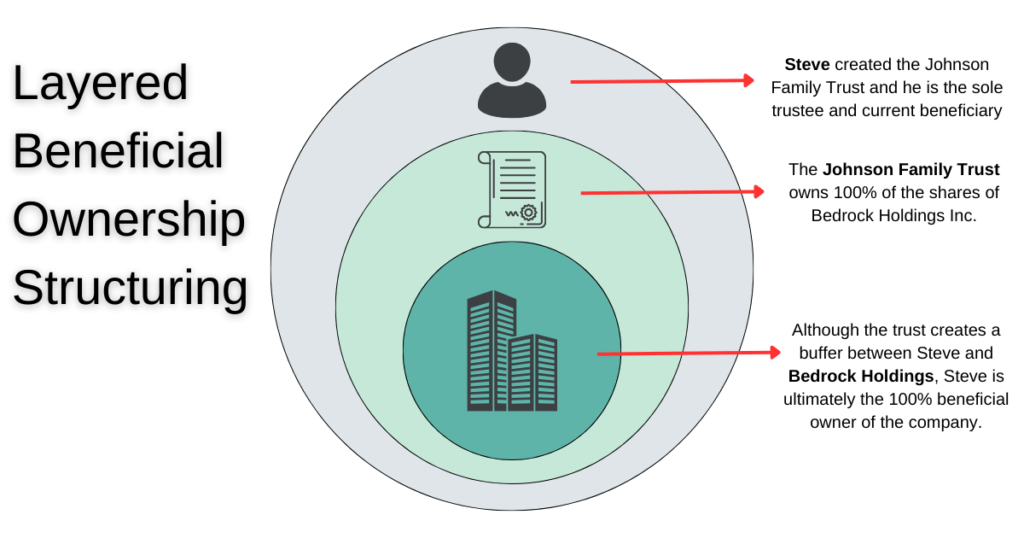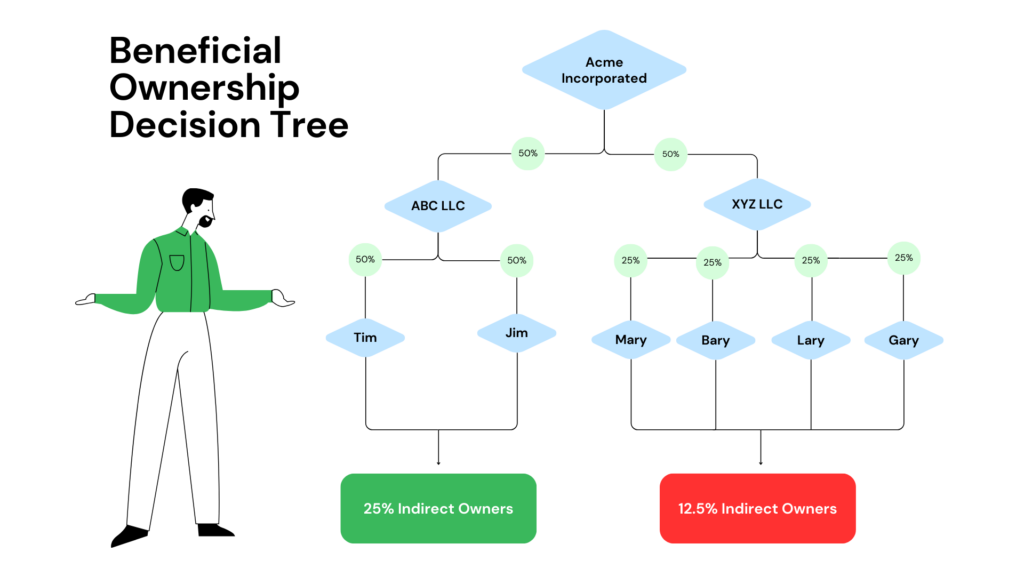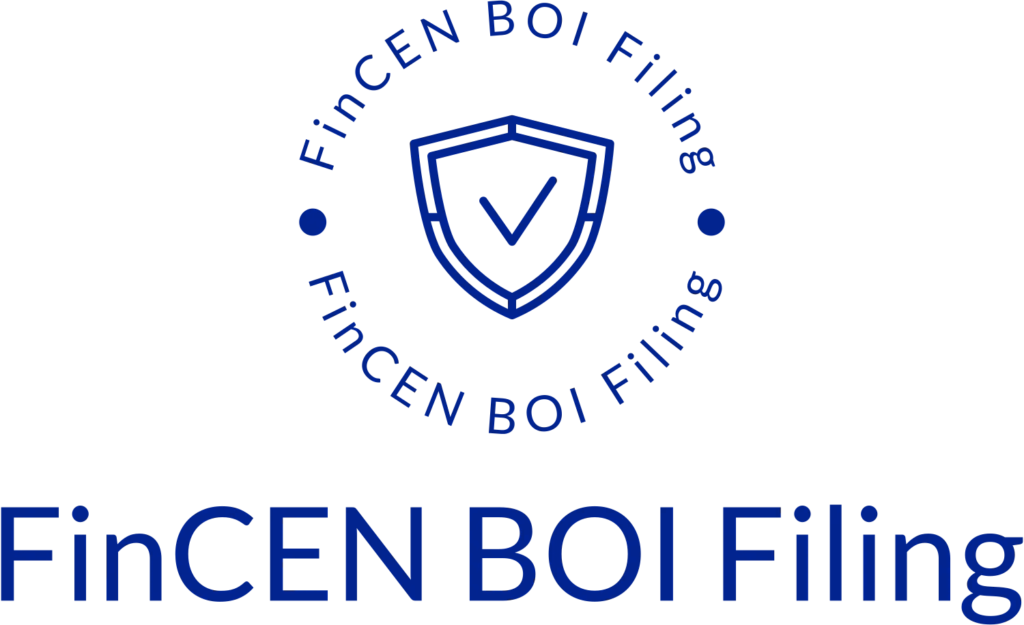Determine Your BOI Requirement with a Complex Ownership Structure
When it comes to BOI reporting, navigating complex ownership structures can be challenging. Understanding and accurately disclosing individuals with a significant stake in your company is crucial for compliance. In this guide, we’ll provide a streamlined approach to handling complexity in BOI reporting while incorporating essential keywords for SEO.

Understanding & Navigating Complex Ownership Structures
BOI reporting revolves around identifying individuals who own, control, or significantly influence a business. In complex ownership structures, these individuals may be concealed behind layers of entities, trusts, or arrangements. Unraveling this web is essential for BOI compliance.
Determining if a company must disclose beneficial ownership details can become complex when ownership structures involve multiple layers or entities.
Companies with many owners spread across different entities or trusts may not have any single individual meeting the 25% ownership threshold. However, if these owners act together, they could exert significant control, triggering reporting requirements. It is essential to scrutinize ownership stakes and decision-making authority in such cases.
Multiple Layers of Ownership
When a trust or a company owns another company, determining the ultimate beneficial owner (UBO) requires a closer examination of the ownership structure. The UBO is the individual who ultimately controls or benefits from the company, despite any layers of trusts or corporate entities in place. This often involves tracing ownership up through the parent company or trust to identify the person who holds significant control or economic interest.

The illustration depicts a nested structure of corporate ownership with three layers:
- The innermost circle represents Bedrock Holdings Inc., the operating company that generates revenue and is responsible for reporting its beneficial owners.
- The middle circle represents the Johnson Family Trust, which owns Bedrock Holdings Inc.
- The outermost circle represents Steve, who is both the trustee and beneficiary of the Johnson Family Trust.
This layered structure demonstrates how Steve indirectly controls Bedrock Holdings Inc. through the intermediary entity of the Johnson Family Trust. As a result, Steve is identified as the Ultimate Beneficial Owner (UBO) of Bedrock Holdings Inc.
In this scenario, Steve would be reported as the UBO on the Beneficial Ownership Information (BOI) report for Bedrock Holdings Inc. This is because Steve, as both the trustee and beneficiary of the Johnson Family Trust, exercises ultimate control over the company, despite not directly owning it.
Challenges in Determining All Beneficial Owners
Determining all beneficial owners can become challenging when there are multiple owners and layers of different corporations involved in owning a company. In such complex structures, ownership stakes can be spread across various entities, making it difficult to pinpoint who ultimately controls or benefits from the company. Typically, individuals owning less than 25% are not considered beneficial owners, while those owning more than 25% are identified as beneficial owners.

In the example above, Tim and Jim each own 50% of ABC LLC, which in turn owns 50% of Acme Incorporated. Mary, Bary, Lary, and Gary each own 25% of XYZ LLC, which owns the other 50% of Acme Incorporated.
Assuming none of the owners in XYZ LLC are considered control persons of Acme, they would not need to be reported as beneficial owners of Acme, as their individual ownership in Acme is only 12.5%, below the 25% threshold. However, XYZ LLC would still need to report each of them as beneficial owners of as they all own 25% of that company.
Tim and Jim reach the 25% ownership threshold for both ABC LLC and Acme Incorporated and therefore would be reported as beneficial owners for both companies.
What if there isn’t a 25% Beneficial Owner?
If no individual within a company, or from the parent company, owns 25% or more of the entity, at least one person must be designated as the “control person” and listed as a beneficial owner in the Beneficial Ownership Information Report (BOIR). The control person is typically an individual with significant authority over the entity’s operations, such as a senior officer (e.g., CEO, CFO, or general manager), and is required to fulfill the reporting obligations for compliance.
Simplified Steps to Handle Complexity
1. Identify All Ownership Layers
For companies with multi-layered ownership structures involving other entities or trusts, it is crucial to trace the ownership trail to identify the ultimate individual beneficial owners. This may involve “piercing the corporate veil” by looking through multiple layers of ownership to determine the individuals who ultimately own or control the company.
It may help to map out your entire ownership structure, including indirect involvements. Trace back to the natural persons who ultimately own or control the business.
2. Assess Ownership Stakes and Control
Even if no single individual meets the 25% ownership threshold for reporting, companies should carefully analyze ownership stakes and decision-making authority. If multiple owners are working in concert and have significant control over the company, they may still need to be reported as beneficial owners.
3. Maintain Comprehensive Records
Maintaining comprehensive and up-to-date records of ownership information, including details on individuals, entities, and ownership percentages, can be invaluable. These records can serve as a reference point for BOI reporting and help ensure compliance with evolving regulations.
4. Leverage FinCEN BOI Filing as a Resource
The tools and resources on FinCENBOIFiling.com are available to everyone, providing valuable assistance in determining your reporting requirements.
To find out quickly if you are required to file a BOI report for your business, check out our free 2-minute Eligibility Quiz.
Common Pitfalls to Avoid
- Ignoring Indirect Ownership: Include all indirect paths, as even minority stakeholders in intermediary entities can hold substantial control.
- Avoiding Assumptions: Each complex structure is unique, requiring a tailored approach.
- Procrastinating Reporting: Start early to allow time for unraveling complexities.
Complex Ownership Structure Summarized
Navigating complex ownership structures in BOI reporting is challenging but manageable with a systematic approach, expertise, and the right tools. FinCEN BOI Filing offers solutions for simplified reporting, ensuring BOI compliance. Thoroughness, accuracy, and staying informed are key to managing BOI complexities.
Frequently Asked Questions
Have questions about the Beneficial Ownership Filing process? Check out FinCEN BOI Filing's frequently asked questions for the answer.
What is a BOI report?
A Beneficial Ownership Information (BOI) report is a filing required by FinCEN to disclose key details about individuals who own or control a company, ensuring compliance with anti-money laundering laws and enhancing corporate transparency. Filing a BOI takes 5-10 minutes and can be done here.
When does the CTA become effective?
The Corporate Transparency Act (CTA) reporting requirements take effect on January 1, 2024. Business entities established before this date have until January 1, 2025, to meet the reporting obligations.
Are there penalties for not filing a BOI report?
Yes, failing to file a BOI report can result in substantial penalties, including hefty fines and potential legal repercussions. Learn more about the BOI deadlines and non-filing BOI penalties.
How do I file a BOI report?
Filing a BOI takes about 5-10 minutes and can be done here. If you’re not sure if you are required to file, you can take the one minute BOI Eligibility Quiz.
Who is considered a beneficial owner?
A beneficial owner is any individual who either:
- Directly or indirectly exercises substantial control over the reporting company, or
- Directly or indirectly owns or controls 25% or more of the company’s ownership interests.
Substantial control includes the power to direct, influence, or determine significant decisions of the company. This may involve senior officers or individuals with authority to appoint or remove senior officers or a majority of the board.
Ownership interests encompass rights that establish ownership in the company, ranging from basic stock shares to more complex financial instruments.
For more details on “substantial control” and “ownership interests,” refer to our guide on complex ownership structures.
How do BOI reports get submitted to FinCEN?
We submit reports through a secure API connection directly with FinCEN’s Beneficial Ownership Secure System (BOSS). This integration allows for seamless and efficient filing of Beneficial Ownership Information reports, reducing the time it takes to complete and submit a report.
Our user-friendly form is designed to minimize errors by guiding you through the process with clear prompts and checks. Additionally, by using the secure API connection, we ensure that your data remains private and protected throughout the submission process, adhering to the highest security standards.
Who can access the beneficial ownership information?
The beneficial ownership information will be accessible only to authorized government agencies, such as law enforcement and regulatory authorities, for the purpose of combating money laundering, fraud, and other financial crimes.
This data is not publicly available and is used solely for compliance with legal and regulatory requirements. Only those with a legitimate need, as defined by the law, will be able to access this information to ensure transparency and uphold national security.
You can read more about keeping your personal information private when filing your BOIR.
Do I need to file a BOIR annually?
No, you do not need to file a Beneficial Ownership Information Report (BOIR) annually. However, you are required to update and file a new report if there are any changes to the beneficial ownership or company applicant information, such as changes in ownership or control. The report must be filed when there are material updates, but there is no annual filing requirement unless changes occur.
What information is required in a BOI report?
Type of Report
The reporting company must specify the type of report being submitted: an initial report, a correction of a prior report, or an update to a prior report.
Company Information
The reporting company must provide the following details:
- Legal Name: The official name of the company.
- Trade Name: Any “doing business as” (DBA) names used by the company.
- Address: The current street address of its principal place of business. If the principal place of business is outside the U.S., the company must report the address from which it conducts business in the U.S.
- Taxpayer Identification Number (TIN): This includes an EIN, SSN, or ITIN, as appropriate.
Beneficial Owner Information
The reporting company must provide the following details for each beneficial owner:
- Legal Name: The individual’s full legal name.
- Date of Birth: The individual’s date of birth.
- Address: The individual’s residential street address.
- Identification Document: A unique identifying number from an acceptable identification document, the issuing state or jurisdiction, and an image of the document.
Company Applicant Information (if required)
For reporting companies created on or after January 1, 2024, the following information about the company applicant must be provided:
- Address: The individual’s residential street address. If the applicant forms or registers companies as part of their business (e.g., paralegals), the business address can be used. The address does not need to be in the U.S.
- Identification Document: A unique identifying number from an acceptable identification document, the issuing state or jurisdiction, and an image of the document.
Who needs to file a BOI report?
Most businesses are required to file a BOI report, with exceptions for 23 specific categories, such as publicly traded companies and other regulated entities. To learn more about these exemptions and determine if your business needs to file, read this article.
When is the BOI report due?
- Companies formed or registered before January 1, 2024, must file an initial BOI report by January 1, 2025.
- Companies formed or registered in 2024 must file a BOI report within 90 days of receiving actual or public notice of their formation or registration.
- Companies formed or registered on or after January 1, 2025, must file their initial BOI report within 30 days of receiving actual or public notice.
You can learn more about the BOI deadlines here.
What is type of ID is required?
Acceptable identification documents include the following:
- A valid, unexpired driver’s license issued by a U.S. state or territory.
- A valid, unexpired ID card issued by a U.S. state, local government, or Indian Tribe for identification purposes.
- A valid, unexpired passport issued by the U.S. government.
- If none of the above is available, a valid, unexpired passport issued by a foreign government may be used instead.
An identification document must be collected for each beneficial owner.
For companies formed after 2023, an ID must also be provided for the company applicant.
Who is a company applicant?
A company applicant is the individual responsible for creating or registering a company. Specifically, it includes:
- The individual who directly files the document to form or register the entity with the relevant state or tribal authority, such as the Secretary of State.
- The individual primarily responsible for directing or controlling the filing process, even if they are not the one submitting it.
For companies formed or registered after January 1, 2024, this information must be reported as part of the Beneficial Ownership Information Report (BOIR).
Is it necessary to use a certified public accountant (CPA) or other professional to submit a BOI report?
Most individuals will be able to submit their Beneficial Ownership Information reports directly without needing assistance from attorneys or CPAs. Our streamlined, user-friendly form guides you through the process, making it simple to provide the required information accurately and efficiently.
Is a company required to update and correct information that is no longer accurate?
Yes, a company is required to update or correct its beneficial ownership information whenever it is no longer accurate. If there are any changes to the company’s beneficial owners or company applicant information, such as a change in ownership percentages or control, the company must file an updated report with the correct details. This ensures that the information on record remains accurate and compliant with the reporting requirements, helping to maintain transparency and reduce the risk of misuse.
Will I receive a confirmation of submission after submitting the BOIR?
After submitting your BOIR through our website, you will receive an email containing a unique submission process ID, confirming that your submission has been successfully received.
The email will also notify you once FinCEN has accepted your report. In rare instances, if your submission is rejected, we will inform you of the reason and provide a link to resubmit the corrected information.
You can track the status of all your submissions through our BOIR tracking page, ensuring you stay updated on the progress of your report. Most submission have a confirmed acceptance within a few minutes of submission.
